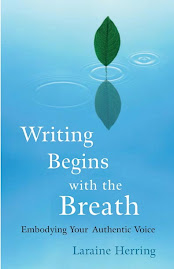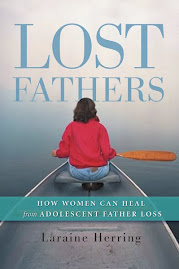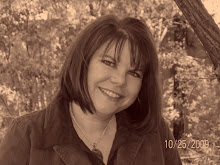Monday, January 10, 2011
Calvin & Hobbes & Us & Them & Arizona
Here's a link to the Calvin & Hobbes cartoon above.
Most of you know I live in Arizona, a state that has been in national news a lot this past year for a variety of reasons, very few of them positive. This weekend, you've no doubt heard about the Tucson shooting. I have been thinking about what to say about that, if anything. I have been sitting for the past year in the cesspool of the political rhetoric in AZ on both sides on immigration, on citizenship issues, on English and Spanish language in schools. I know exactly what Safeway parking lot the shooting took place in. Tucson was my home for a little over two years, and I always think of Tucson in shades of yellow and turquoise.
I went to the YouTube site of the alleged shooter. I won't link to it here. You know how to find it if you want to read what he said. I went to his site because the man was a community college creative writing student. I went there, like I went to the Virginia Tech shooter's site (who was also a creative writing student), because each man was using language to try and say something.
It's my job to read people's writing and then try and help them figure out what they are trying to say. Every semester, we get students whose thought processes don't make sense on the page -- ideologies aside, their sentence structures are backwards, their logical leaps fall off cliffs. Every semester, we get students who are the lone wolves, the outsiders, the ones who don't gel with the group. Every semester we get a threatening one.
The last time I taught freshman composition, I realized the depth of the divisions among our students. For $50K a year, do I have the energy to incite them out of their belief systems and into honest dialogue? Not really. We faculty get told we're promoting left wing agendas. We get told we're communists. Elitists. Intellectuals. We get called all sorts of things, but most of us are just trying to help people think critically. Believe what you want. Vote how you want. But understand how and why you believe what you believe. Look at other points of view. When I first started teaching, I enjoyed teaching argumentation and rhetoric because it was fascinating to watch people open to other viewpoints (both sides). I don't see this as much, and in a state where we think it's OK to carry concealed weapons anywhere, I'm not inclined to push at doors that are sealed shut.
I read the writings of the alleged shooter. His thought processes (not the content, but the process itself) are very familiar to me as a teacher of developmental and first year composition. And though he's writing what appears to ramble, those ramblings reveal clues. He appears to recognize the importance of words even though he does not know how to use them well. He wrote, 'What's government, if words don't have meaning?'
I thought about that sentence a lot. I thought about how hard it is to accept the chaos and randomness of this world. I thought of all the religions and belief systems set up by people to help provide a way we can make meaning out of chaos. As humans, we seem to need to have a meaning almost more than we need oxygen. The commentators and news programs yesterday and today are already tracking the path of the shooter, laying down the clues, the breadcrumbs, that will help them write the story of meaning (or at least a reason for) the killing. Meaning helps us be at peace, it seems. Only, since no one can agree on meaning, the stories we create seeking peace often incite conflict.
We have been killing each other as long as we have had the tools to do so. We have yet, apparently, to find a story about it that makes it make sense to everyone. A story that makes it OK. Or a story that will convince all of us to stop. We continue our killing, actively and passively, and we then try and make a hierarchy of the dead so the illusion of order is maintained. (You can think about this hierarchy in the context of food -- this animal and this one are OK for food -- those animals are pets. Of course, choosing which animals are pets and which are food is the luxury of those with enough to eat.)
Our media is going to use language, words, to construct the story of this shooting and the story of the shooter. We are going to find a way with language to tuck this into the fabric of our country in the pattern we are most comfortable with. Right now, what seems comfortable is to blame the events on a climate of bitterness. It's this radio host; no it's that one! It's this cable show; no it's that one! The blame story, a familiar one, is also an external one. It is also only a single part of the fabric. I always had trouble teaching cause and effect writing because I don't believe there's a clear sequence. To me, causes and effects are simultaneous, and there are a multitude of factors involved in any action which results in a consequence. There's not a single reason for things, and often, I think, there is no reason at all. It just is. Things just are. The mind fights this concept. Observe it.
When I was in my twenties, all I knew to do was shout. I read books on feminism that made me angrier and angrier at what I felt had been denied to me because I was a woman. I read rants, wrote rants, and wrote plays and stories that attacked men, attacked patriarchy, attacked society.
I don't do this anymore. I have become apolitical. I vote, but I do not engage in political discussions except with those closest to me. I do not try to persuade or coerce. Instead, I have been listening, and rather than trying to shout back, I have been trying to live a life of quiet grace and peace. I honestly don't know if this is akin to burying my head in the sand. I know some would say so. My favorite bumper sticker of my early twenties was "if you're not outraged, you're not paying attention." I have found for myself that outrage leads to high blood pressure, weight gain, a sore throat, and a closed heart. The fire-anger I stoked in my body began to turn on me. I had to find another way. If I put a bumper sticker on my car today, it would be something like: Shut up. Listen.
Words are my way. Stories are my way. I read books with content I'd rather not know about. I watch documentaries and television shows that keep showing me that the world is much bigger than my tiny mountain town. It is too easy to live in Prescott, and I do not want to fall asleep. The very least I can do is bear witness to suffering. The very least.
I do not believe in a heaven and a hell. I do not believe in a being of some type who has predetermined our lives or who is manipulating them or benevolently watching over them. I do, though, see divinity all around me, in what we label as sacred and what we label as profane. Our practice, as I see it, is to face ourselves. To sit with the conflicts raging within us and breathe into them. Soften to them. Open the door to the totality of who we are -- the parts of us who will rescue an animal from the humane society and the parts of us who will step over a homeless person on the street. Observe these things. Us and them, you and me, all contained inside each terrifying, beautiful human. Find the way to sit at peace with that.
Arizona has been bashed as a bastion of hate, bigotry, and intolerance. I am not prepared to deny those claims, and I am often ashamed and appalled by the rhetoric of Arizona, but I will propose that Arizona is part of a larger whole, and that which is found in Arizona is found in every state, in every country. These are not qualities of Arizona. These are human qualities. The shooter's website also stated "I am human." Indeed. Let us not turn our backs to that. Let us dare to look at the totality of humanness, not just its tenderness and gentleness. The more we turn away and deny the sides of ourselves we find 'ugly', the fiercer and louder they become.
I cannot imagine holding a gun and shooting a living thing, yet I eat meat, I drive a car, I wear leather. I cannot deny that I am a part of a world that kills, even if I am not the one with the literal gun in my hand. If I rage against the hunter while still consuming what he kills, I am fracturing myself into unrecognizable pieces. I cannot imagine the grief of the parents of the child who died, or the families of the other victims, or the feelings of Representative Gifford's husband, but neither can I offer them a half-sculpted story of the hows and whys. If I were sitting with them today, I could only sit with them, listen, hold their hands if they asked, stay silent while they cried.
My friend Cain Carroll tweeted this last summer: The heart may have to break a thousand times to make enough room for the kind of love it takes to embrace the world as it is.
My prayer and hope for us is that we sit still, listen without judgment, and breathe. That we allow our hearts to break open, screaming all the while until the breath runs clear and crisp and the edges we thought were barriers have vanished into stars.
As we write the story of these events, let's start inside ourselves. As we write the story, rather than look outward for meaning, look inward for compassion.
And then, may we let our stories go and stand empty in the field.
Subscribe to:
Comments (Atom)












